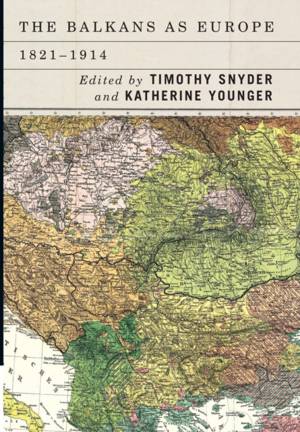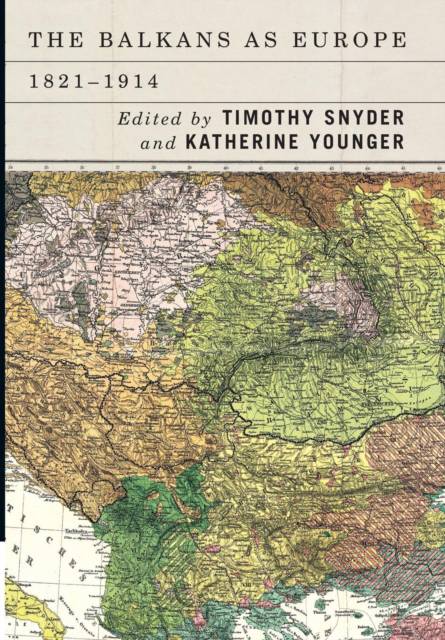
- Afhalen na 1 uur in een winkel met voorraad
- Gratis thuislevering in België vanaf € 30
- Ruim aanbod met 7 miljoen producten
- Afhalen na 1 uur in een winkel met voorraad
- Gratis thuislevering in België vanaf € 30
- Ruim aanbod met 7 miljoen producten
The Balkans as Europe, 1821-1914
Omschrijving
This collection of essays places the Balkans at the center of European developments, not as a conflict-ridden problem zone, but rather as a full-fledged European region. Contrary to the commonly held perception, contributors to the volume argue, the Balkans did not lag behind the rest of European history, but rather anticipated many (West) European developments in the decades before and after 1900. In the second half of the nineteenth century, the Balkan states became fully independent nation-states. As they worked to consolidate their sovereignty, these countries looked beyond traditional state formation strategies to alternative visions rooted in militarism or national political economy, and not only succeeded on their own terms but changed Europe and the world beginning in 1912-14. As the Ottoman Empire weakened and ever more kinds of informal diplomacy were practiced on its territory by more powerful states, relationships between identity and geopolitics were also transformed. The result, as the contributors demonstrate, was a phenomenon that would come to pervade the whole of Europe by the 1920s and 1930s: the creeping substitution of ideas of religion and ethnicity for the idea of state belonging or subjecthood. CONTRIBUTORS: Ulf Brunnbauer, Holly Case, Dessislava Lilova, John Paul Newman, Roumiana Preshlenova, Dominique Kirchner Reill, Timothy Snyder Timothy Snyder is Richard C. Levin Professor of History at Yale University. Katherine Younger is a research associate at the Institute for Human Sciences (IWM) in Vienna, Austria.
Specificaties
Betrokkenen
- Uitgeverij:
Inhoud
- Aantal bladzijden:
- 190
- Taal:
- Engels
- Reeks:
- Reeksnummer:
- nr. 21
Eigenschappen
- Productcode (EAN):
- 9781580469159
- Verschijningsdatum:
- 15/05/2018
- Uitvoering:
- Hardcover
- Formaat:
- Genaaid
- Afmetingen:
- 157 mm x 231 mm
- Gewicht:
- 521 g

Alleen bij Standaard Boekhandel
Beoordelingen
We publiceren alleen reviews die voldoen aan de voorwaarden voor reviews. Bekijk onze voorwaarden voor reviews.







